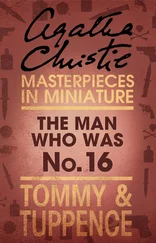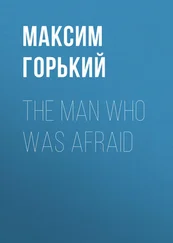He stared and talked at the girl’s red hair and amused face for what seemed to be a few minutes; and then, feeling that the groups in such a place should mix, rose to his feet. To his astonishment, he discovered the whole garden empty. Everyone had gone long ago, and he went himself with a rather hurried apology. He left with a sense of champagne in his head, which he could not afterwards explain. In the wild events which were to follow this girl had no part at all; he never saw her again until all his tale was over. And yet, in some indescribable way, she kept recurring like a motive in music through all his mad adventures afterwards, and the glory of her strange hair ran like a red thread through those dark and ill-drawn tapestries of the night. For what followed was so improbable, that it might well have been a dream.
When Syme went out into the starlit street, he found it for the moment empty. Then he realised (in some odd way) that the silence was rather a living silence than a dead one. Directly outside the door stood a street lamp, whose gleam gilded the leaves of the tree that bent out over the fence behind him. About a foot from the lamp-post stood a figure almost as rigid and motionless as the lamp-post itself. The tall hat and long frock coat were black; the face, in an abrupt shadow, was almost as dark. Only a fringe of fiery hair against the light, and also something aggressive in the attitude, proclaimed that it was the poet Gregory. He had something of the look of a masked bravo waiting sword in hand for his foe.
He made a sort of doubtful salute, which Syme somewhat more formally returned.
“I was waiting for you,” said Gregory. “Might I have a moment’s conversation?”
“Certainly. About what?” asked Syme in a sort of weak wonder.
Gregory struck out with his stick at the lamp-post, and then at the tree. “About this and this,” he cried; “about order and anarchy. There is your precious order, that lean, iron lamp, ugly and barren; and there is anarchy, rich, living, reproducing itself there is anarchy, splendid in green and gold.”
“All the same,” replied Syme patiently, “just at present you only see the tree by the light of the lamp. I wonder when you would ever see the lamp by the light of the tree.” Then after a pause he said, “But may I ask if you have been standing out here in the dark only to resume our little argument?”
“No,” cried out Gregory, in a voice that rang down the street, “I did not stand here to resume our argument, but to end it for ever.”
The silence fell again, and Syme, though he understood nothing, listened instinctively for something serious. Gregory began in a smooth voice and with a rather bewildering smile.
“Mr. Syme,” he said, “this evening you succeeded in doing something rather remarkable. You did something to me that no man born of woman has ever succeeded in doing before.”
“Indeed!”
“Now I remember,” resumed Gregory reflectively, “one other person succeeded in doing it. The captain of a penny steamer (if I remember correctly) at Southend. You have irritated me.”
“I am very sorry,” replied Syme with gravity.
“I am afraid my fury and your insult are too shocking to be wiped out even with an apology,” said Gregory very calmly. “No duel could wipe it out. If I struck you dead I could not wipe it out. There is only one way by which that insult can be erased, and that way I choose. I am going, at the possible sacrifice of my life and honour, to prove to you that you were wrong in what you said.”
“In what I said?”
“You said I was not serious about being an anarchist.”
“There are degrees of seriousness,” replied Syme. “I have never doubted that you were perfectly sincere in this sense, that you thought what you said well worth saying, that you thought a paradox might wake men up to a neglected truth.”
Gregory stared at him steadily and painfully.
“And in no other sense,” he asked, “you think me serious? You think me a flaneur who lets fall occasional truths. You do not think that in a deeper, a more deadly sense, I am serious.”
Syme struck his stick violently on the stones of the road.
“Serious! ” he cried. “Good Lord! is this street serious? Are these damned Chinese lanterns serious? Is the whole caboodle serious? One comes here and talks a pack of bosh, and perhaps some sense as well, but I should think very little of a man who didn’t keep something in the background of his life that was more serious than all this talking something more serious, whether it was religion or only drink.”
“Very well,” said Gregory, his face darkening, “you shall see something more serious than either drink or religion.”
Syme stood waiting with his usual air of mildness until Gregory again opened his lips.
“You spoke just now of having a religion. Is it really true that you have one?”
“Oh,” said Syme with a beaming smile, “we are all Catholics now.”
“Then may I ask you to swear by whatever gods or saints your religion involves that you will not reveal what I am now going to tell you to any son of Adam, and especially not to the police? Will you swear that! If you will take upon yourself this awful abnegations if you will consent to burden your soul with a vow that you should never make and a knowledge you should never dream about, I will promise you in return”
“You will promise me in return?” inquired Syme, as the other paused.
“I will promise you a very entertaining evening.” Syme suddenly took off his hat.
“Your offer,” he said, “is far too idiotic to be declined. You say that a poet is always an anarchist. I disagree; but I hope at least that he is always a sportsman. Permit me, here and now, to swear as a Christian, and promise as a good comrade and a fellow-artist, that I will not report anything of this, whatever it is, to the police. And now, in the name of Colney Hatch, what is it?”
“I think,” said Gregory, with placid irrelevancy, “that we will call a cab.”
He gave two long whistles, and a hansom came rattling down the road. The two got into it in silence. Gregory gave through the trap the address of an obscure public-house on the Chiswick bank of the river. The cab whisked itself away again, and in it these two fantastics quitted their fantastic town.
CHAPTER II
THE SECRET OF GABRIEL SYME
THE cab pulled up before a particularly dreary and greasy beershop, into which Gregory rapidly conducted his companion. They seated themselves in a close and dim sort of bar-parlour, at a stained wooden table with one wooden leg. The room was so small and dark, that very little could be seen of the attendant who was summoned, beyond a vague and dark impression of something bulky and bearded.
“Will you take a little supper?” asked Gregory politely. “The pate de foie gras is not good here, but I can recommend the game.”
Syme received the remark with stolidity, imagining it to be a joke. Accepting the vein of humour, he said, with a well-bred indifference
“Oh, bring me some lobster mayonnaise.”
To his indescribable astonishment, the man only said “Certainly, sir!” and went away apparently to get it.
“What will you drink?” resumed Gregory, with the same careless yet apologetic air. “I shall only have a creme de menthe myself; I have dined. But the champagne can really be trusted. Do let me start you with a half-bottle of Pommery at least?”
“Thank you!” said the motionless Syme. “You are very good.”
His further attempts at conversation, somewhat disorganised in themselves, were cut short finally as by a thunderbolt by the actual appearance of the lobster. Syme tasted it, and found it particularly good. Then he suddenly began to eat with great rapidity and appetite.
Читать дальше








